
For Those Who Stand At Shorelines
Work by artist Luiza Prado de O. Martins, exhibited at the Haus Der Kulturen Der Welt for Transmediale 2020.
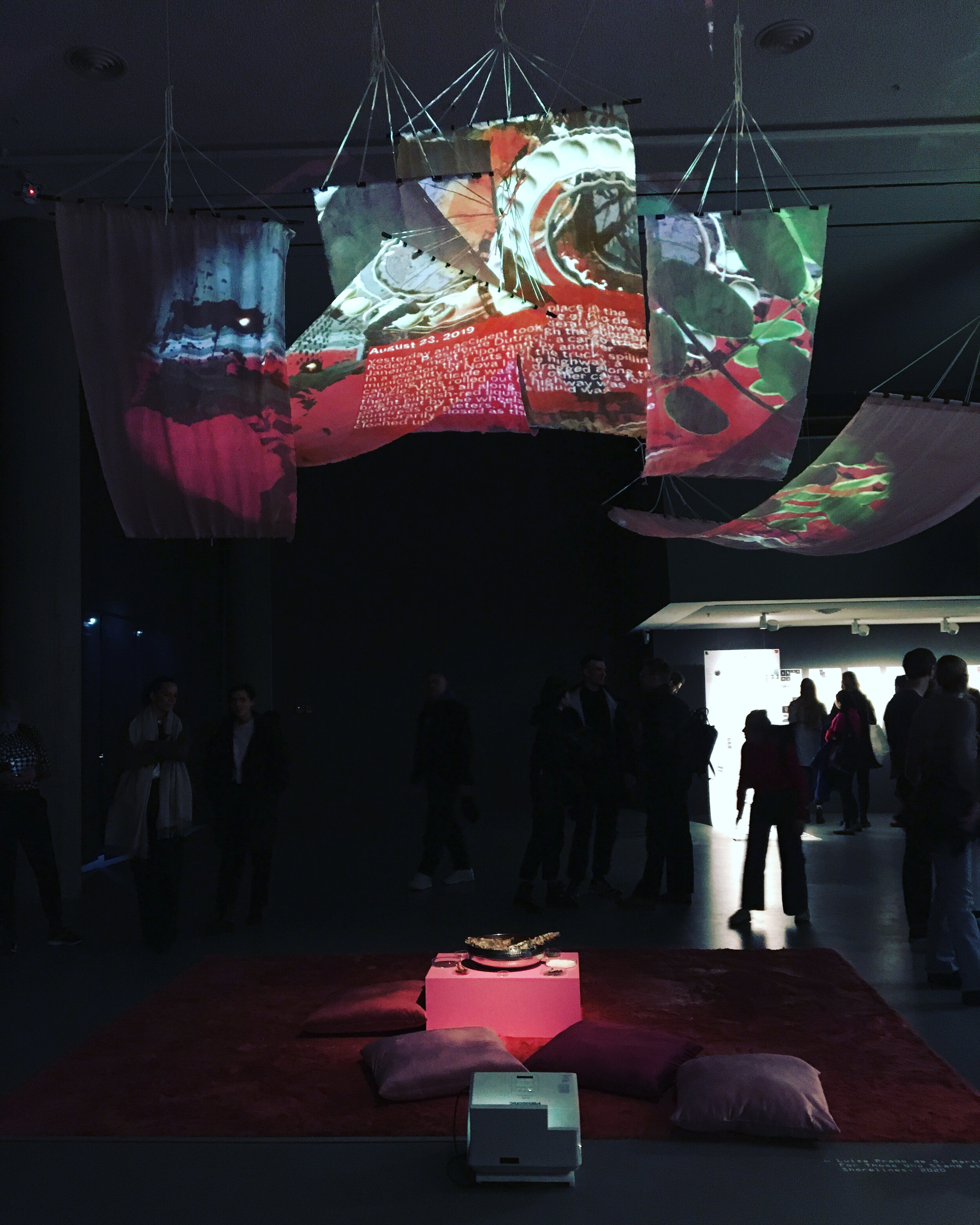
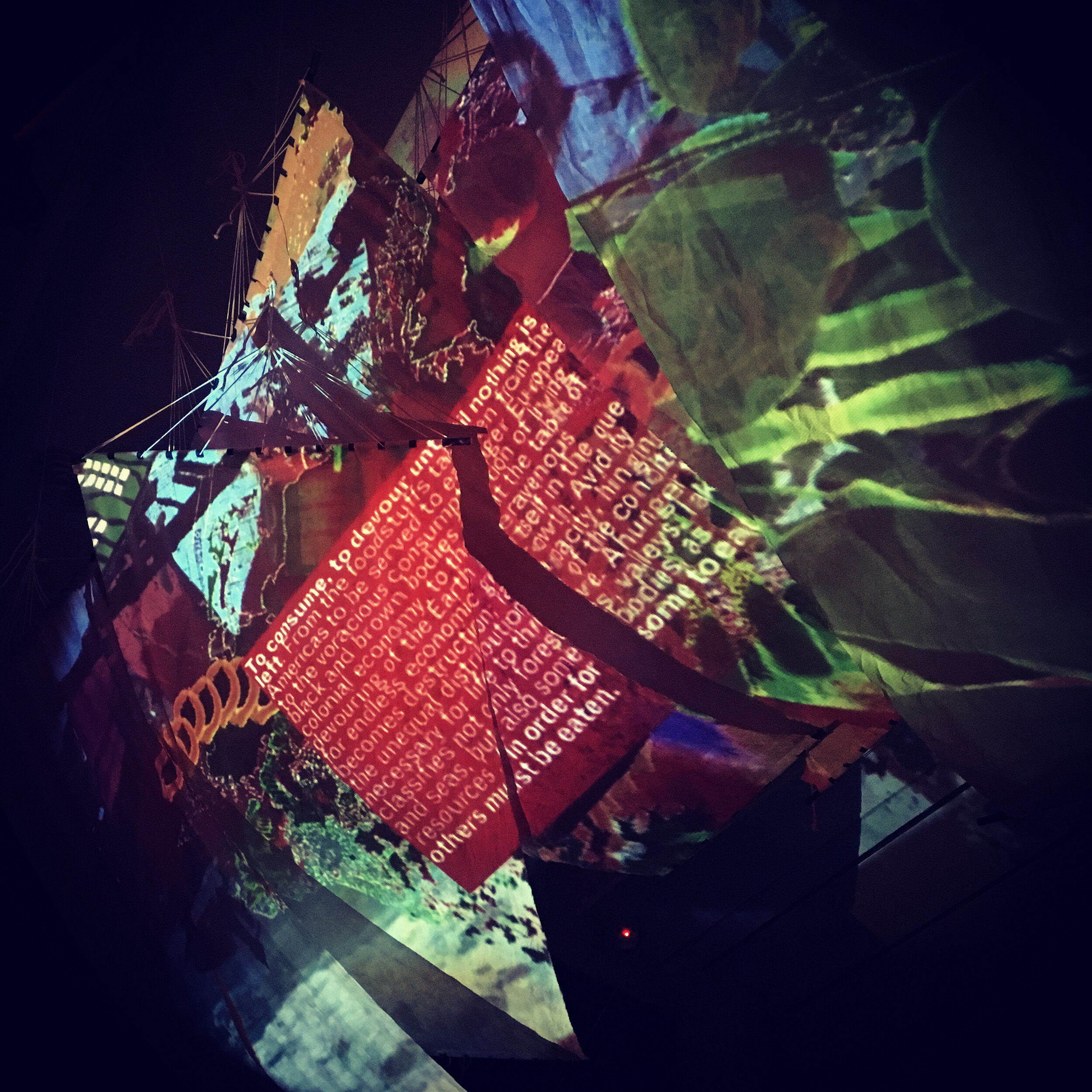
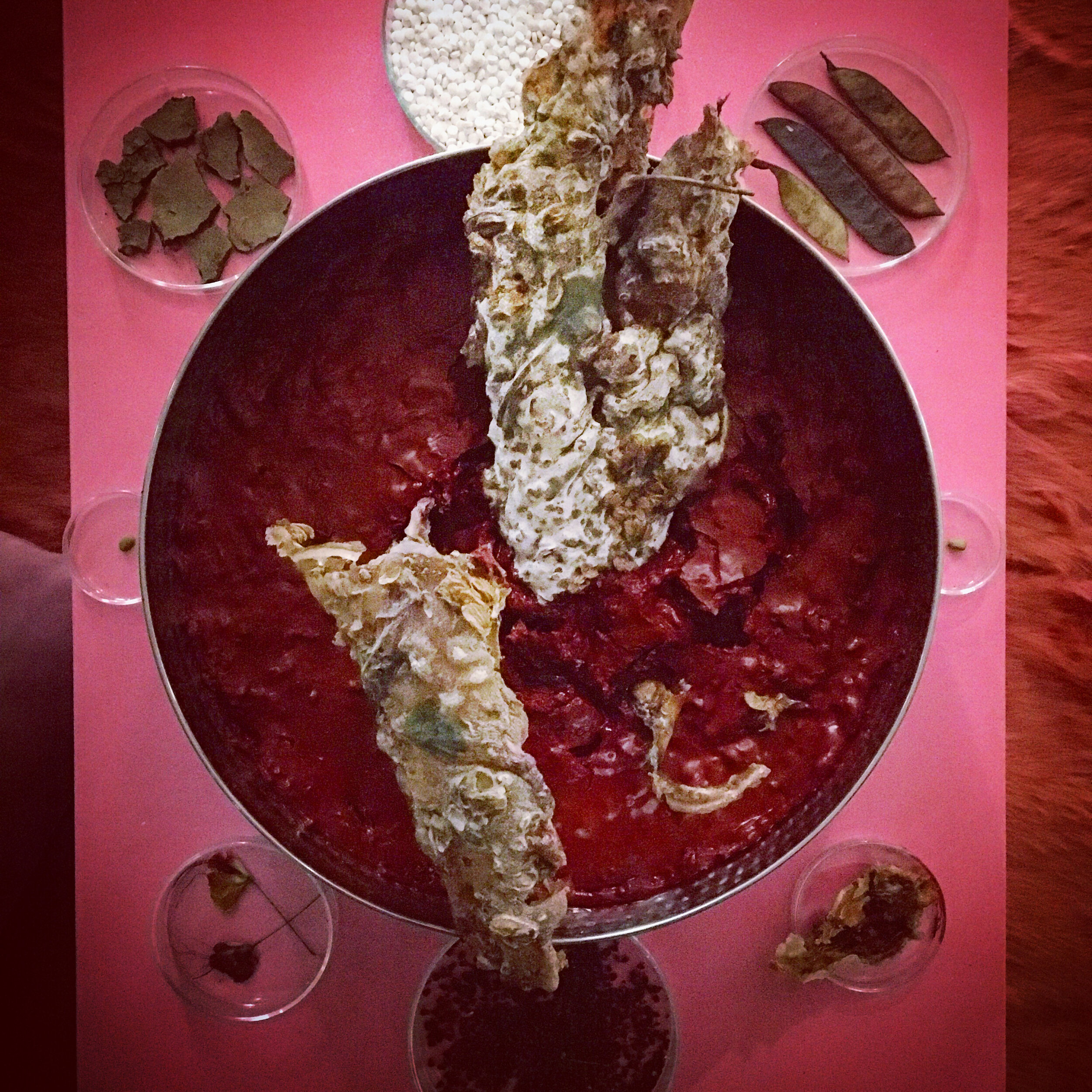
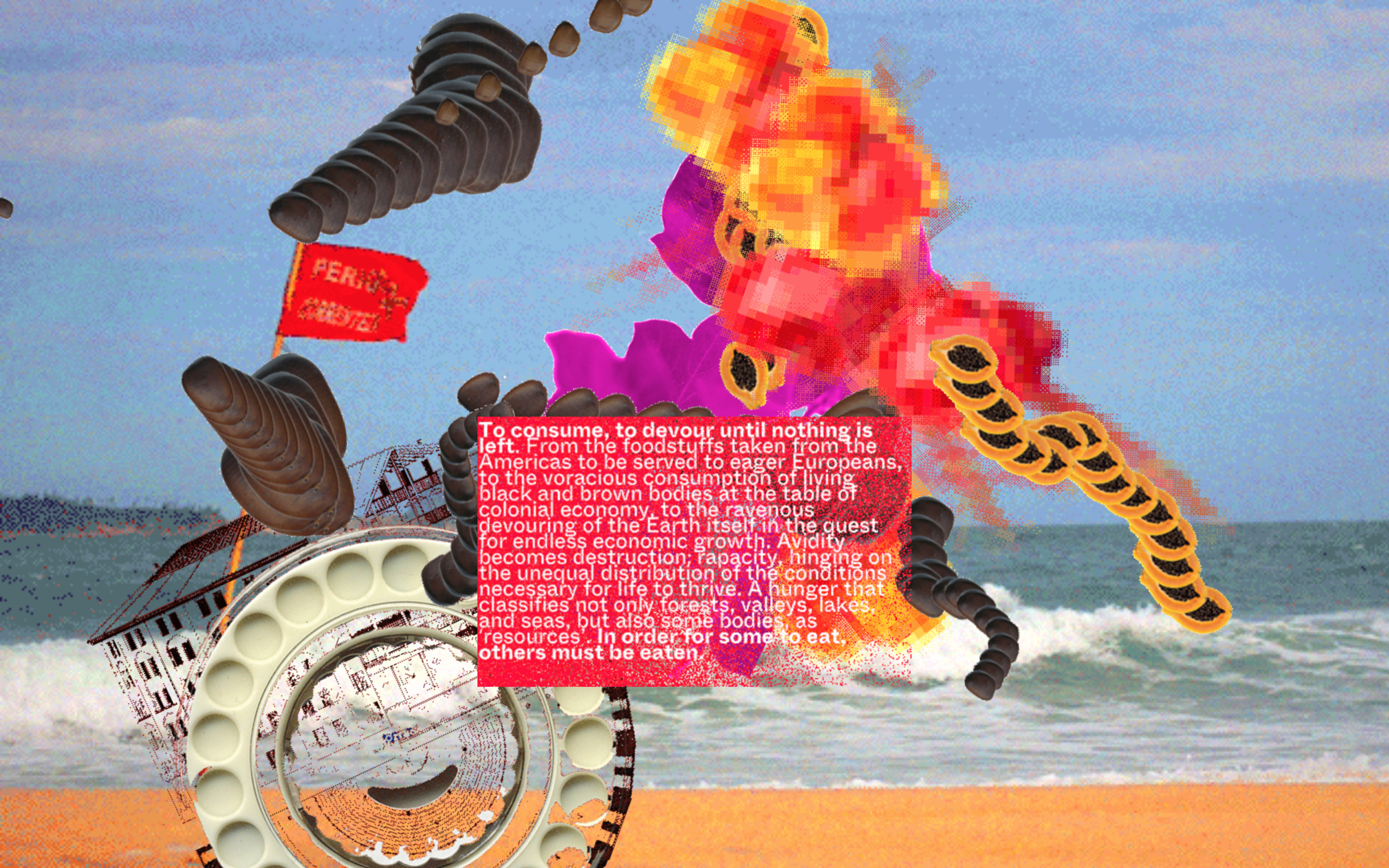
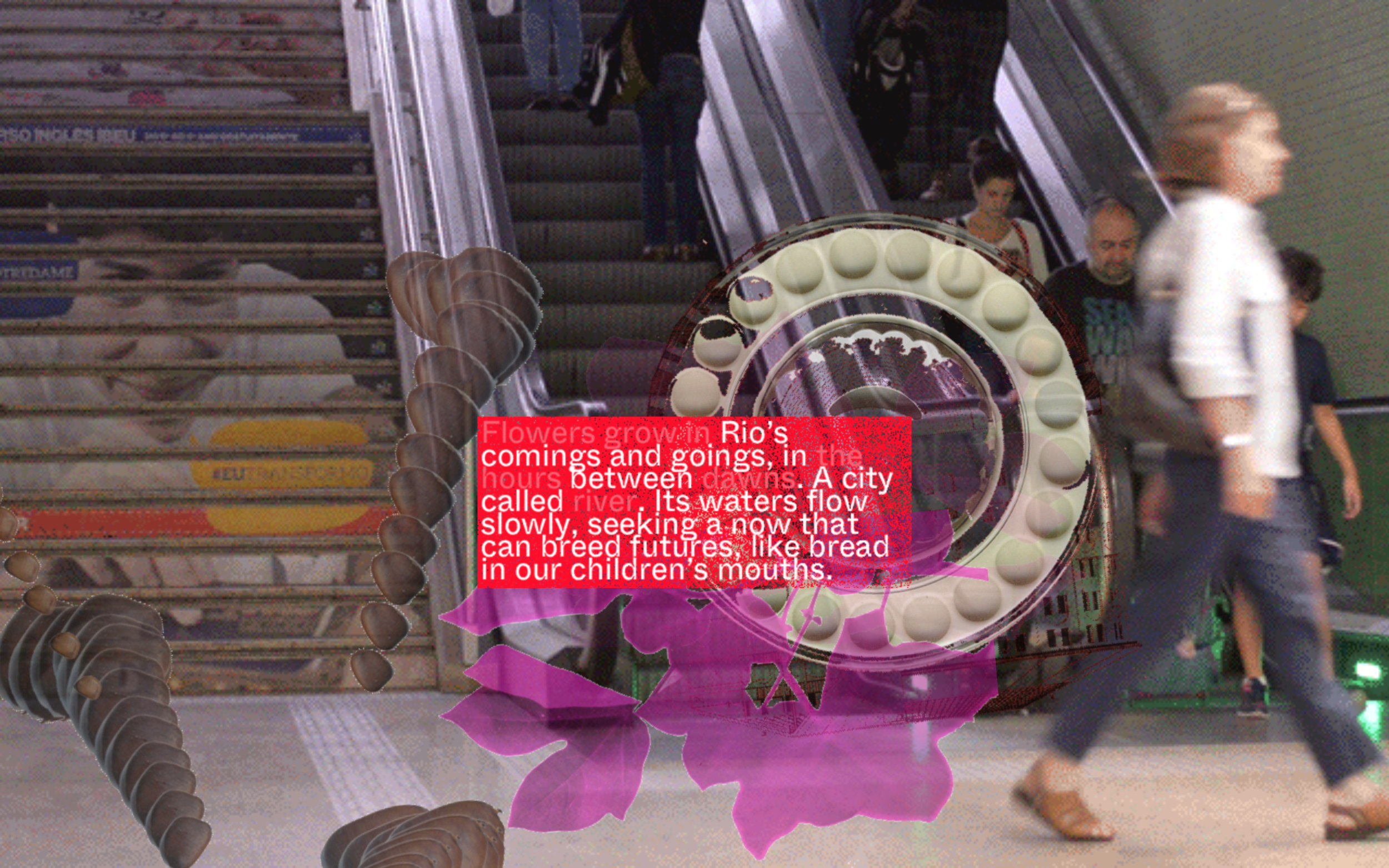
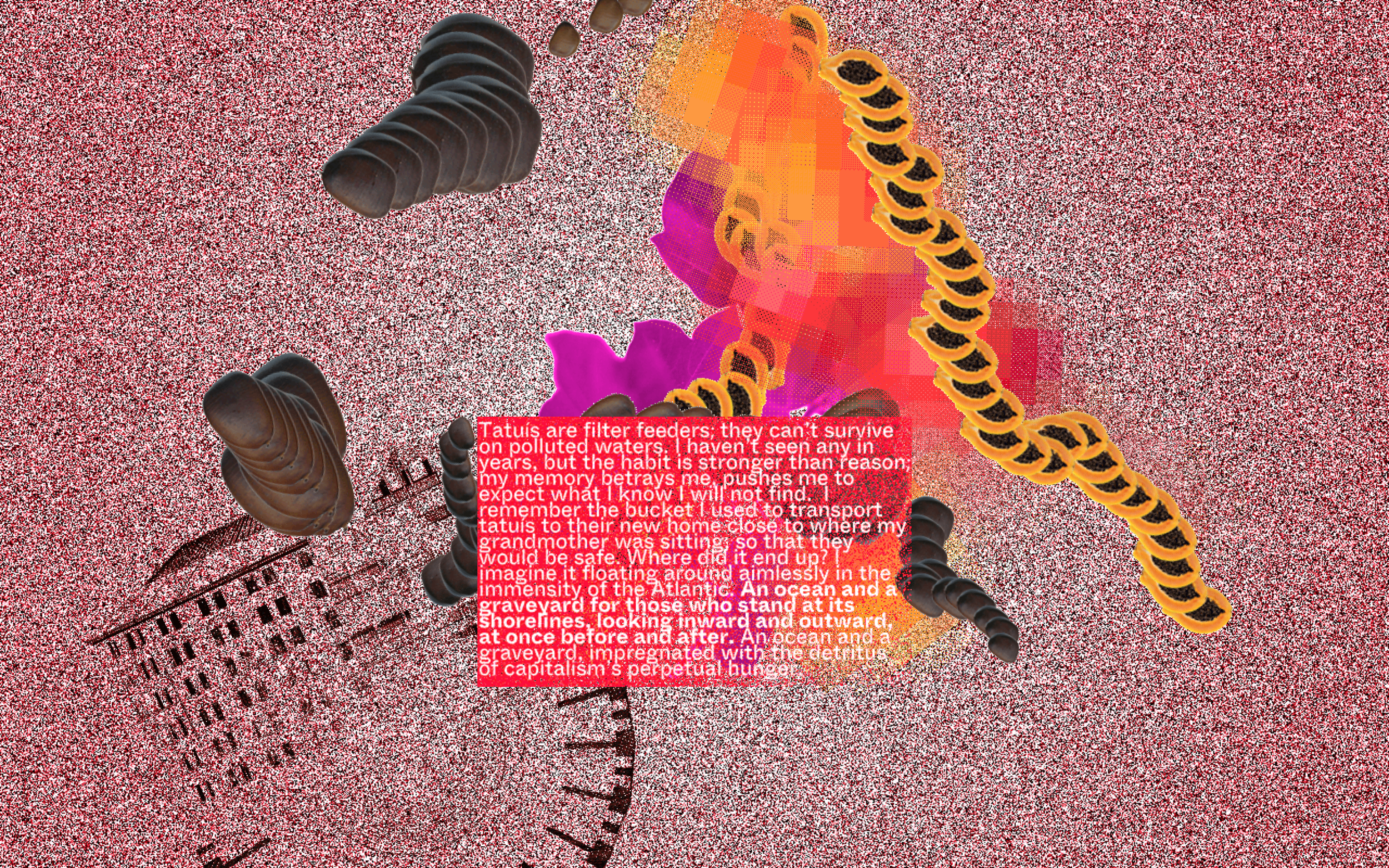
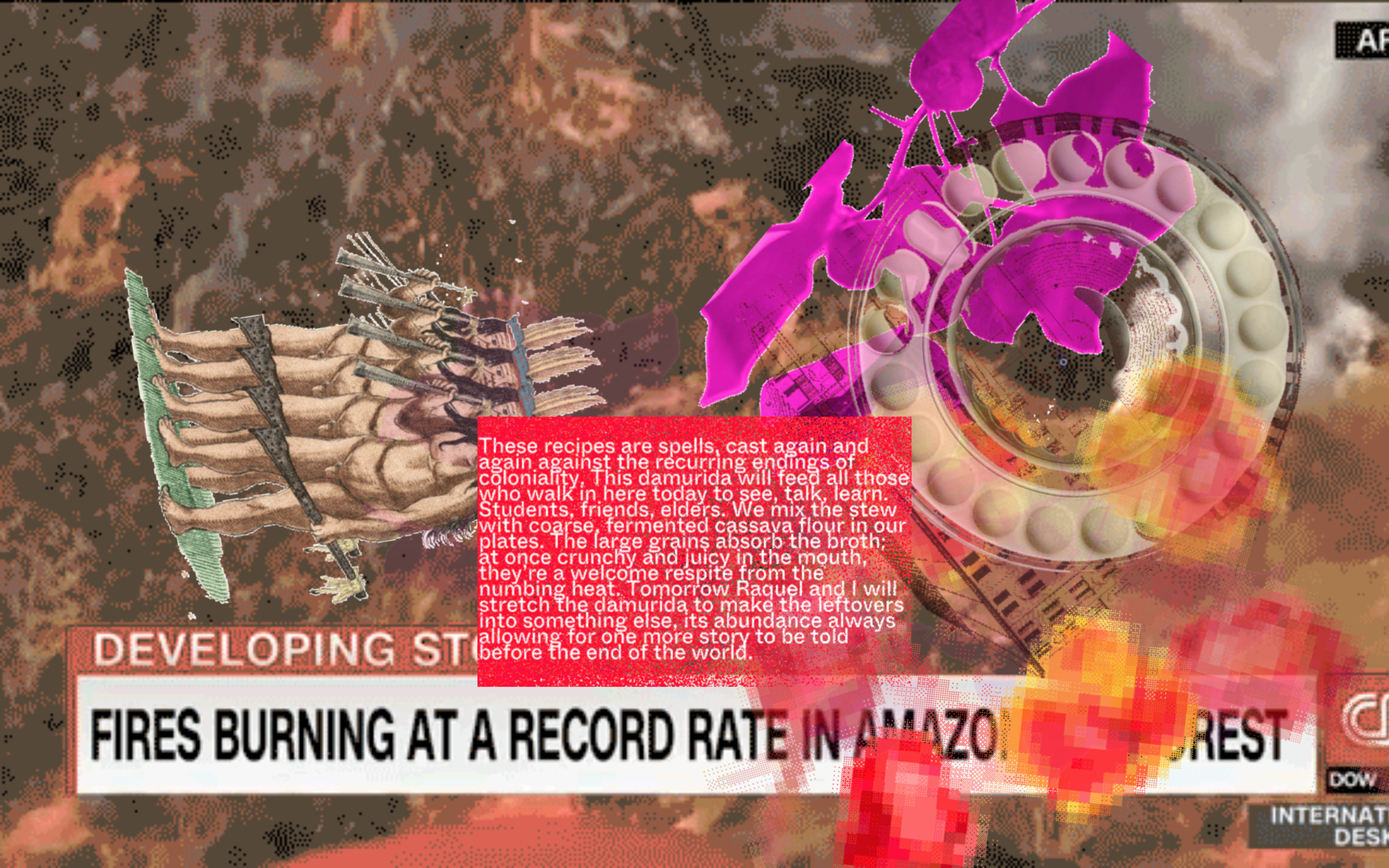
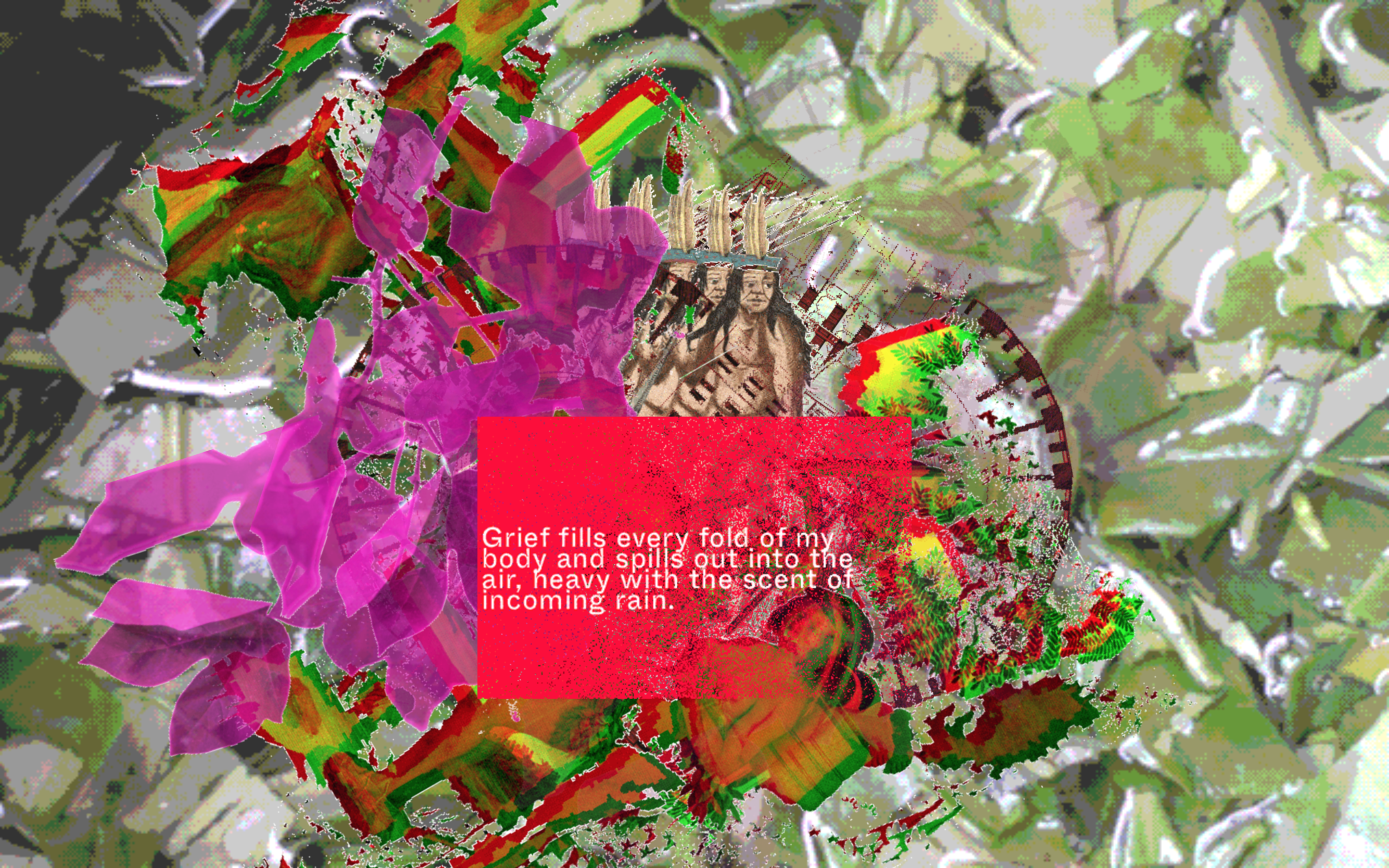
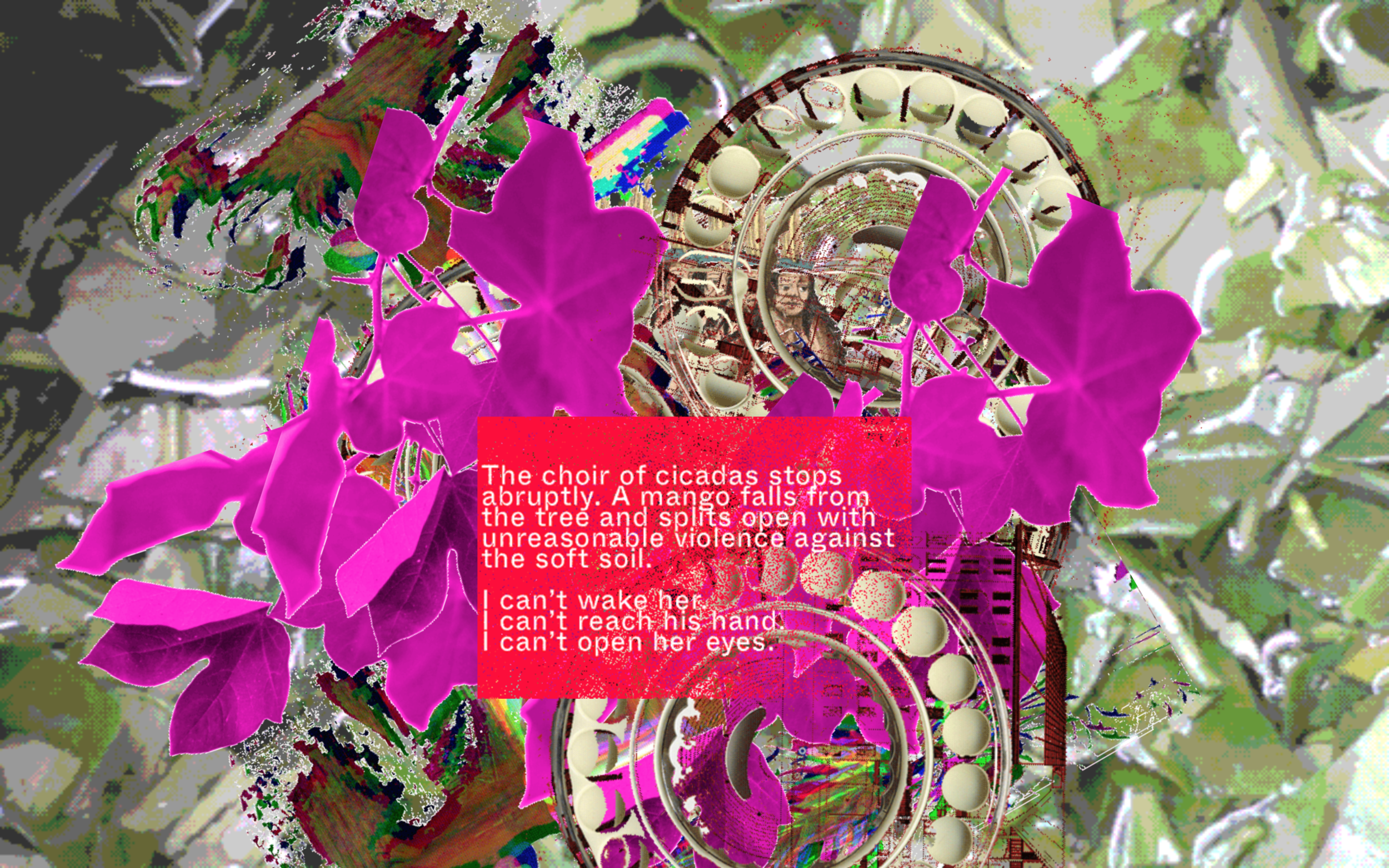
For Those Who Stand At Shorelines (2020)
Installation, dimensions variable.
Hammocks, GIF essay projection, bioplastic, birth control pills, Caesalpinia pulcherrima seeds, flowers, and pods, Berlin soil.
The production of scarcity and hunger are practices profoundly interwoven into the history of coloniality — from the foodstuffs taken from the American continent to be cooked and served to eager Europeans; to the voracious consumption of living black and brown human bodies at the table of colonial economy; to the ravenous devouring of the Earth itself in the quest for endless economic growth. It is this hunger that underscores the rhetoric of exploitation of human and nonhuman persons at the root of the current climate crisis; a hunger that classifies not only forests, valleys, lakes, and seas, but also some people under the definition of “resources.” How is it possible, then, to create the conditions for life whilst struggling within a political system designed to produce the death of some for the benefit of others? How to counteract a narrative of scarcity for which the solution presented by the current system is the total consumption of the earth itself, and with it those who stand at its margins, at its shorelines? This immersive installation proposes an exploration of the entanglements between the ongoing climate crisis, fertility, land and belonging by looking into two radical, decolonizing practices of care and affect — cooking and contemplation — that directly challenge the perverse infrastructures that monitor and restrict the ability to create futures and sustain worlds that are multiple, plural, heterogenous. Exhibition visitors are invited to sit or lie down and participate, together with the artist and invited guests, in a series of activation sessions where we will approach and work through some of these issues together.
This work was exhibited at the Haus Der Kulturen Der Welt for Transmediale 2020. It was developed with the support of Transmediale, Künstlerhof Frohnau, and The Institute for Endotic Research.